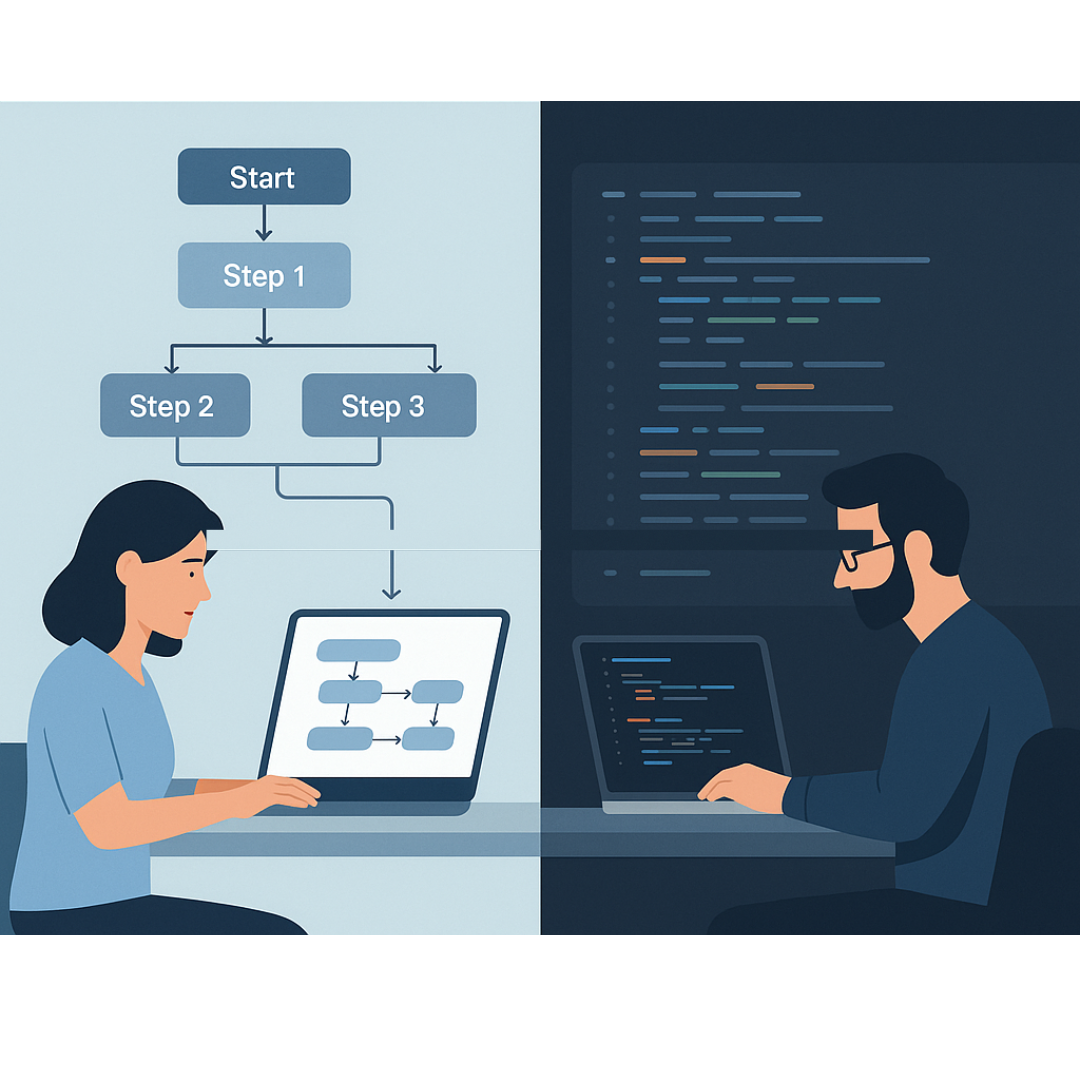Which framework is the best for your app development project?
This piece is part of our intern blogger series.
A framework is a software environment that allows for mobile applications to be created and deployed. Frameworks increase the efficiency of creating new mobile applications by allowing users to modify the generic code for specific functionalities.
It is a semi-implemented application as it provides an environment to simplify development. A framework will improve productivity and reduce the time for development and cost.
There is a difference between a framework and a library. The framework calls the code, and the code calls the library, which is a set of code someone else wrote that is packaged and reused.
Distinguishing between hybrid and native frameworks
There are two common types of frameworks: hybrid and native. Before comparing their advantages, it is important to distinguish the two frameworks. A hybrid framework contains a single codebase that runs across multiple platforms, while native development requires the user to write code specific to the platform. Hybrid frameworks allow developers to use standard languages for websites including HTML, HTML5, CSS, and JavaScript, for building mobile applications, whereas native frameworks require developers to use platform specific-languages, such as Swift or Objective-C for iOS and Java for Android. Further, for native development, the developer must know how to use each platform’s specific integrated development environment (IDE) and associated APIs.
Another key difference is that hybrid applications incorporate native and web view components, while native applications do not incorporate web views. Native frameworks let developers use web tools and the platform’s native interface instead of simply imitating the native look and feel, while hybrid apps are generally hosted inside another native application that uses a webview. A webview is a browser inside a hybrid mobile application that functions by allowing mobile applications to be built using web technologies such as HTML, JavaScript, and CSS, and packaging the app as a native application. The webview enables the hybrid app to access native mobile functionalities like the microphone, video, camera, or contacts etc. The applications created using a hybrid framework look native through WebView, but they are not truly native. For example, a common hybrid framework, Ionic 2, uses Apache Cordova, another mobile application development framework, to access the phone’s hardware functionalities as the HTML5 code is packaged inside a native WebView.
Consider, for instance, a spectrum with hybrid frameworks at one end and native frameworks on the other end.
Ionic 2 is an example of framework on the hybrid end of the spectrum. Ionic reproduces native features by using web technologies to develop the application. Ionic is based on a Javascript framework called Angular, and uses html templates. Ionic will run the same code regardless of the platform the application is meant for, but the native features that are necessary to the application will be developed separately. For example, if an app requires tabs, they will be displayed at the top or bottom of the screen depending on the platform (ex. iOS or Android).
Here’s an example of a hybrid application built for an Atlanta startup called GoFan.

React Native is another hybrid framework, but it is in the middle of the hybrid-native spectrum, offering great performance and functionality while also supporting multiple platforms. React is a Javascript framework that creates an application that is indistinguishable from other native applications, allowing for a better user experience. With React, a bridge component must be written for each platform the application is getting deployed to in order to create a smooth and seamless user experience, but it may not support all the APIs for Android or iOS. Other frameworks like Xamarin and Titanium are also in the middle of the spectrum, but require knowledge of other languages like C#.
Native applications are created using the native language of the device, and by using native code, developers can access all the features of the specific platform’s device. Examples include Java for Android and Objective C for iOS.
When deciding which framework is optimal to build your app, there are several factors to consider:
- User Experience and Expectations
- Budget
- Online vs. Offline Functionalities
- Project time
- Skillset of your team
- Updates
- Debugging & Security
User experience & expectations
For applications that are developed using either framework, the user experience is similar, and the user may not be able to point out any obvious differences. However, native applications load a lot faster and have much better performance. Further, native frameworks tend to not have bugs in the visualization since platform-specific languages such as Swift or Java are stricter and have to compile time checking, which eliminates errors in the code. By using inbuilt features, applications created using native code can communicate very easily with native functionalities and applications in the device, such as Wi-Fi, camera, and Bluetooth. Native apps also feature a very fluid interface, and animations and interactivity are easy to implement.
Widgets can look native in hybrid applications, but will only really be native when created using native code. If animations and interactivity need to be added, an experienced development team will be required to optimize performance and to build the application as a single page app. If a mobile device has a slow processor, hardware and graphics issues can arise when a hybrid framework is used.
React Native is a wonderful alternative to native application development and far superior to other hybrid frameworks as it follows the native behaviors of the platform, thus providing a near-native UI performance. Using react native is also highly cost effective.
Budget
Using a hybrid framework to develop your application can be cost effective in certain situations since the code is adaptable to multiple platforms. Hybrid code is only written once and deployed on both Android and iOS platforms, whereas Native frameworks require extra labor costs since the code must be written for each operating system specifically. It is also costlier to update and maintain native applications. In the long term, however, the investment in producing a native application may save time and money by offering great user experience and performance.
Project time
The product can be delivered quickly when a hybrid framework is since a single cross-platform codebase can facilitate the simultaneous release of applications to the market. An application created using a native framework will take more time because the code must be specific to the device, and the release of the application will need to be staggered.
React Native allows for a nearly native app to be created within a limited time frame.
Team skillset
The ideal framework to use also depends on the skillset of the team members. If the team members know only about web development, a hybrid framework like Ionic 2 is best to use because an HTML canvas is provided. React Native uses an extension of the Java Script language, called JSX, which combines html and Java Script, so it is essential for developers who use React to know Javascript. Other development frameworks, like Xamarin utilize C# code that is later converted to the native code of multiple other mobile platforms. For truly native apps, developers must be able to write code for each Android and iOS platforms using platform specific languages like Objective C and Java.
Debugging & security
Bugs are easier to debug in native applications and more difficult to debug in hybrid applications. This is because each platform may handle the standard hybrid code differently, but if the code is written for the specific platform, bugs are less likely to occur while using the platform-specific IDE.
Nevertheless, in hybrid applications, there is a smaller security perimeter to test. In native applications, security tests and bug fixes will need to be performed for each platform separately.
Overall, from a business standpoint, the decision should be based on a holistic view. Client requirements, feature requirements, user experience, project budget, and the time to market are all factors to take into consideration to find the right solution.
Avanthika Ramesh is a Digital Scientists intern from Milton High School.



